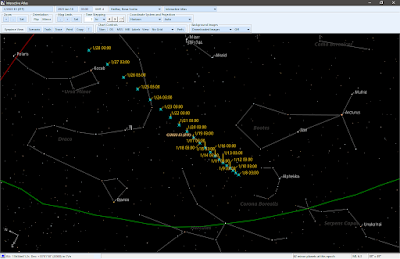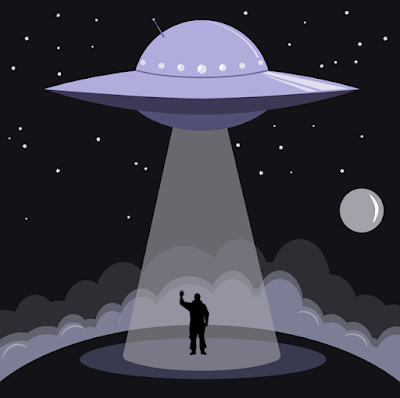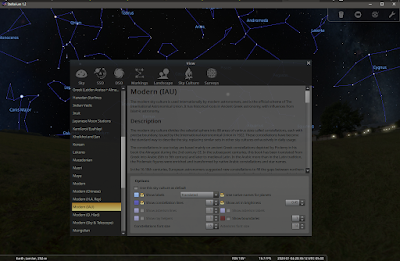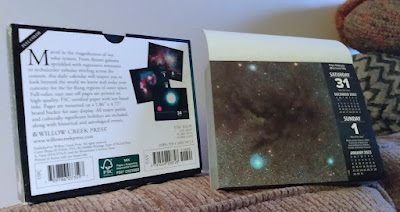Dressed for the cold. Put on two layers of jammy pants, astronomy constellation ones outside. Put on my astronomy vest with my BLOIS crest.
7:19 PM. Checked the battery on the voice recorder. About half. Red #42 theatre film on the computer LCD screen. I readied to go outside. Left the sketching gear for later.
Put the new MEC Guides duck down parka on again. Did up all the buttons tonight, for the flap covering the zipper. The Sony ICD-SX750 into the breast pocket. baader planetarium Hyperion Mark IV 24-8 zoom eyepiece into the right hip pocket. Custom Deep Red flashlight into the left. Custom red LED USB keyboard light installed.
Out the airlock.
On None More Black, the custom build, turned up the dew heater channels (they had been on, low, the whole time). Powered by the hacked computer PSU.
Centred on RA. Took off the safety tether on the objective cap. Removed the cover. Adjusted the north part of the blind; it had sagged. It was close after the park position command but centred on the Dec marker. Eek. Touched the glass but my gloves were on. Whew. No mark. Ocular into the Williams Optics 2" dielectric mirror diagonal.
Took a seat on Dave Getgood's BigDOC adjustable height astronomy chair. Powered on the motor drive system. Checked the time. 7:24. The hand controller of the IDEA GoToStar was fast 4 minutes. Fine, close enough. Checked the Daylight setting: it was not on. Checked the offset (in the location): 300 minutes. All seemed OK. Why had the 'scope pointing been so far off yesterday? Meh. Move on.
Woke up the Microsoft Surface Laptop Go with the fingerprint reader. SkyTools Visual Professional 4.0j R21 glitched again! Red mode was mucked up with white rows. Just in the short time going from inside to outside. Was it from minimising the application? I cycled the Night Vision. Minimised. OK now. Weird.
Remembered I did not need to do a star alignment; it was in memory. I had parked and maintained the power. I decided to use Betelgeuse. Given how cold it was, I decided to do a medium-speed manual pan close to the orange star in Orion. Didn't want to strain the motors. Then I remembered I had released the clutches, so the model might be screwed up. What the hey, I carried on. The LCD was sluggish. Looked in the Named Stars menu. Found 60 was the magic number. Scrolled down 2 items. Issued a slew to Betelgeuse. Huh. Not too bad. Centred in the Orion 9x50 right-angle corrected finder, then centred in the eyepiece. Synced on the star, in hopes of correcting the model.
7:33. Noted the battery level was already very low on the Sony. Oops. Found a bundle of new Energizers near the photo booth. It occurred to me that the recorder might be recharge mode. Is that a bad thing with alkalines installed?!
Considered Orion targets. ο (omicron) 2 Orionis was a new or unseen quarry. From the Sky & Telescope article. Looked up the alternate designations in the software. Hard time reading it with the old Mark I eyeballs... SAO 94218. Tried entering it into the hand controller. Goofed on the first attempt being in the wrong field, the GoToNova ID field. Oooh. Moved to the second SAO row and it was accepted. Slewed!
Somewhat bright star in the eyepiece. Checked the digital atlas. All right! On it, right on the star. Impressive, the pointing. Centred in the eyepiece.
7:42. Well. I noted a gold-yellow star... Saw the unequal wide pairing with HD 31374 to the north, roughly. Compared some stars in the east. I saw a triad of stars like in the software chart. Confident I was in the right spot. Tricky, I thought. Remembered that the optical path, extended with the external William Optics Crayford-style focuser, made the field of view smaller, more magnified. So while the zoom eyepiece was at 24, I needed to set SkyTools to the 20mm view, to better match the TFOV. [ed: Did I not make a special multiplier to compensate for this?]
Desired hands-free focusing.
Dialed the eyepiece up one notch. Took the custom DIY dew strap off for a moment to check.
West was at my 10 o'clock. Started to doubt I was on the right star. Panned about to verify the star field. It sure looked right... Pretty sure.
Couldn't hear the soft "clicks" as I turned the eyepiece barrel. Was it affected by the cold? Went to the 12mm position.
I kept seeing flanking stars but they were not shown in the software. Set the Eyepiece View to Ideal mode but it did not reveal additional stars. In the Interactive Atlas, I zoomed in, turned on the Mirror flip. Again, no flanking stars. Checked the Object Information box. BU (Burnham) 553 was a triple. A was mag 4.1, B 11.3, and C 11.6. B was close at 36.2 seconds-of-arc while C was 100.4" away. [ed: Latest data on B from 1962 and C from 1918!] The brightness of B also matched in the chart, on hovering with the mouse.
The sky seeing appeared to be bad at the moment.
It was a mystery. Verified the field and position in the finder. Gah. The finder was blocked by the roof. So much for that. I could not spot B. But I was seeing magnitude 10 stars easily. And another random mag 11 star. Weird. Nope. No can-do. Not observed. For another day. Occurred to me to ask Melody if she got it.
Next! For fun...
7:57. Enjoyed Rigel! Intense blue-white star with the little delicate dim baby star. Near to the parent.
B was to the south-west. Visible at the lowest power. It looked good. So nice. Just at the edge of the glare.
The seeing conditions were better than last night. (As predicted.)
8:00. Was B orange?! Did it have some colour? B was a bit right of the Tycho star 5331-1710 1. And another star beyond that. Those stars were south-west but B was actually south-south-west.
Artificial seeing problems? Or "local" seeing problems? My eyes were watering. Combination of my environmental allergies (bad during the day) and the cold. I kept wiping my eyes. Kept blinking to get a clear view.
Marked Rigel as observed. Ooh, and ST4VP screwed up again, switching to white colouring in the rows. Cycled again.
Wanted to work, like last night, in a proximal way. Turned on the check marks for all objects. Untagged items viewed previously and the comets. All centred on Rigel. Spotted something near Procyon.
Noticed the orientation buttons were readable. Earlier the text hadn't shown. Another bug.
Synced. Slewed to α (alpha) CMi. The pointing was off but it was not far away in the finder. Noted diffraction spikes, X-pattern, a cross, like a Newtonian, from the tree branches.
8:09. Oh. The wind. When the breeze blew over the light shield, it felt really cold. On my face and on my hands. Nasty.
Moved from Procyon, using the finder, to the to the target: HR 2950, STF 1126. A S&T target. West was at the 7:00 position. A big flying-V shape with a bright star in the centre. In a big triangle. A long line of stars. Panned to shift distracting Procyon out of the field. Zoomed to get fainter stars. Saw GSC 00187-1457 to the west. Saw BRD 2 (a different double). Easy, brighter, to the north-west, about double the GSC separation. Saw GSC 00187-0984 to the SW, a faint star. Eyes watered like crazy. Activated the Windows Magnifier (Windows +) to help read the screen. Tagged SAO 115775 to the south, another easy bright star. Cheated and looked up the circumstances in the application. A and B were very tight at 0.9" but nearly equal in magnitude, 6.6 and 6.7. C was wide, 43.2", and dimmer at 10.6. Kept lookin'.
Holy Universe! I thought I split the A and B! Going left and right. Roughly north and south. Zoomed in a bunch in the software but it didn't show the two stars, neither in the EV or IA charts. Fainter element was to the right. Didn't get a black line but two dots beside each other. A little infinity symbol. Checked the position angles: 171° and 249°.
[ed: Stelle Doppie says 0.8 arc-seconds! Wow!]
Hand was getting quite cold. The wind wasn't helping. Pined for a mouse so I could keep my glove on. Oh. Wanted for gloves with capacitance pads! That's what I need.
Huh. Sky & Tel was offering some rather challenging objects. Looked for the C companion.
8:28. Ah, gee. Just got it. At the 12mm setting. I had to look above and left of the primary to get it with averted vision (with my usual left eye). Very tough.
I still wanted to say A and B were left and right. Right, yes, north and south. That's why I had a bit of trouble focusing before, using that star as the reference. It was a fuzzy object to focus on, ha.
Went to 8mm, the maximum zoom. B was pointing, nearly directly, to SAO 115775. Oh, and C was visible, while very faint, under direct vision now, at 8mm (approximately 254x). C was roughly west. Somewhat inline with GSC 00187-0984 and about one third the distance. When I looked at the primary, C popped. Soft focus worked too. Wow.
8:32. Sirius was flickering like a light on an emergency vehicle.
I was happy to have tagged a couple of doubles. Wondered about a RASC Deep-Sky Gems target. Returned to Procyon and synced.
Slewed to NGC 2420. Short hop. [ed: Oops, a go-to action.] An open cluster. Nothing visible. Tree branches in the way. Checked the finder. Lots of branches in the way. Occulting branches.
Cold. Frickin' cold. Went inside to warm up. And to kill time for the target to shift right of the naked tree.
8:57. Still branches in the field when I returned.
Checked the recorder battery level. OK. Nearly full.
Wanted to verify the position in the finder but it was not an option. The celestial object was still behind the wood limbs.
9:04. Slewed. Went to Pollux to get a nearby, easily confirmed object, to freshen the synchronisation of the sky model. Centred.
Still some diffraction or interference. Then back to the New General Catalogue object. aka Collinder 154, Melotte 69, Raab 56, or OCL 488. Levy 35.
9:06. Thought I saw it. The members were all faint. Two bright stars above (with SAO 79571). Another below (SAO 79563). A very large hockey stick. Turned off the distracting line in the software. Confirmed I was on it. West was to the left. Extremely faint. Could barely see the stars in the centre. Had to use averted. This target would benefit from a dark sky. Could barely make out 10 stars. [ed: SkyTools says it is a mag 9 cluster.] To re-observe...
Done. Shut down leaving the 'scope on the deck, knowing there was not extremely poor weather on the way. No imminent snow or rain. Brought in some gear.
The Surface was really cold to touch. The metal body was chilly!
Ah! Prepared to make a hot chocolate! Been a while! Yum.
9:15. Checked the chart. I had seen GSC 01373-2340, TYC 01373-1207 1, and GSC 01373-2463.
So, about 2 hours out. But kinda a school night.
Sadly, no DSGs. Removed the red film. Reviewed what I did. Orion constellation, Rigel, Struve 1126 (seen before), HR 2950, NGC 2420. Couldn't split omicron. Passed the Collinder 69 cluster in Orion at the beginning. Still, I was happy. Two nights in a row.
The kettle went off... Hot chocolate in my big ceramic aurora mug.
Donna sent me a cute text with an image, a bear looking at a shooting star. Apropos. Reminded me of my astronomy for birds series.
Checked the weather for St Thomas from EC. Current Conditions: Mostly Cloudy, -5°C. Observed at: London Int'l Airport. Date: 9:00 PM EST Sunday 15 January 2023. Condition: Mostly Cloudy. Pressure: 102.5 kPa, Rising. Temperature: -4.7°C. Dew point: -7.4°C. Humidity: 81%. Wind: E 15 km/h. Wind Chill: -10. Forecast, Hourly Forecast. Tonight, A few clouds, -6°C. Mon 16 Jan, Mainly sunny, 2°C. Night, Rain or drizzle, 2°C. Detailed Forecast, Forecast issued: 3:30 PM EST Sunday 15 January 2023. Tonight: A few clouds. Wind up to 15 km/h. Low minus 6. Wind chill near minus 10. Mon, 16 Jan: Mainly sunny. Wind east 20 km/h becoming light near noon. High plus 2. Wind chill minus 10 in the morning. Night: Becoming cloudy in the evening. Rain beginning near midnight. Rain mixed with drizzle before morning. Temperature steady near plus 2.
That wind was bitter.











